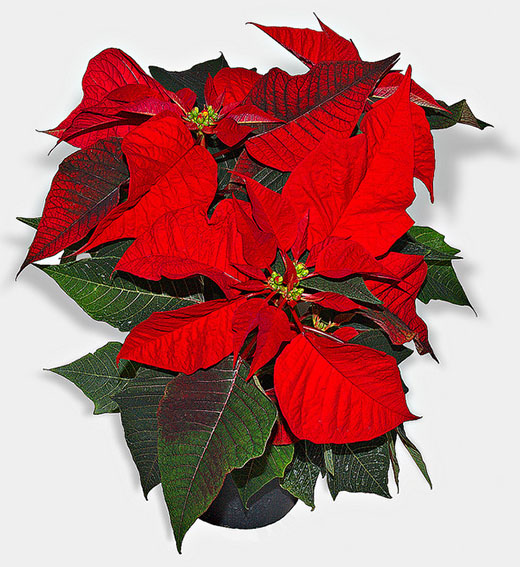
With a little care, poinsettias will provide color and beauty through the holiday season. | Download this photo.
Picky Poinsettias? Not really, an expert says
Festive plants do like it cool
November 21, 2018
MANHATTAN, Kan. – Nothing says winter holidays like a colorful poinsettia. A Kansas State University specialist says it’s not hard to keep them looking healthy and bright through the season.
“Modern poinsettia varieties stay attractive for a long time if given proper care,” said Ward Upham, Master Gardener coordinator with K-State Research and Extension. He says:
- Place your poinsettia in a sunny window or the brightest area of the room, but don't let it touch cold window panes. The day temperature should be 65 to 75 degrees Fahrenheit, and 60 to 65 degrees at night. Temperatures above 75 will shorten bloom life, and below 60 may cause root rot.
- Move plants away from drafty windows at night or draw drapes between them to avoid damage from the cold.
- Poinsettias are somewhat finicky in regard to soil moisture. Avoid overwatering because poinsettias do not like "wet feet." On the other hand, if the plant is allowed to wilt, it will drop some leaves.
- Maintain proper moisture by checking the potting soil daily. Stick your finger about one-half inch deep into the soil. If it is dry to this depth, the plant needs water. When it becomes dry to the touch, water the plant with lukewarm water until some water runs out of the drainage hole, then discard the drainage water.

